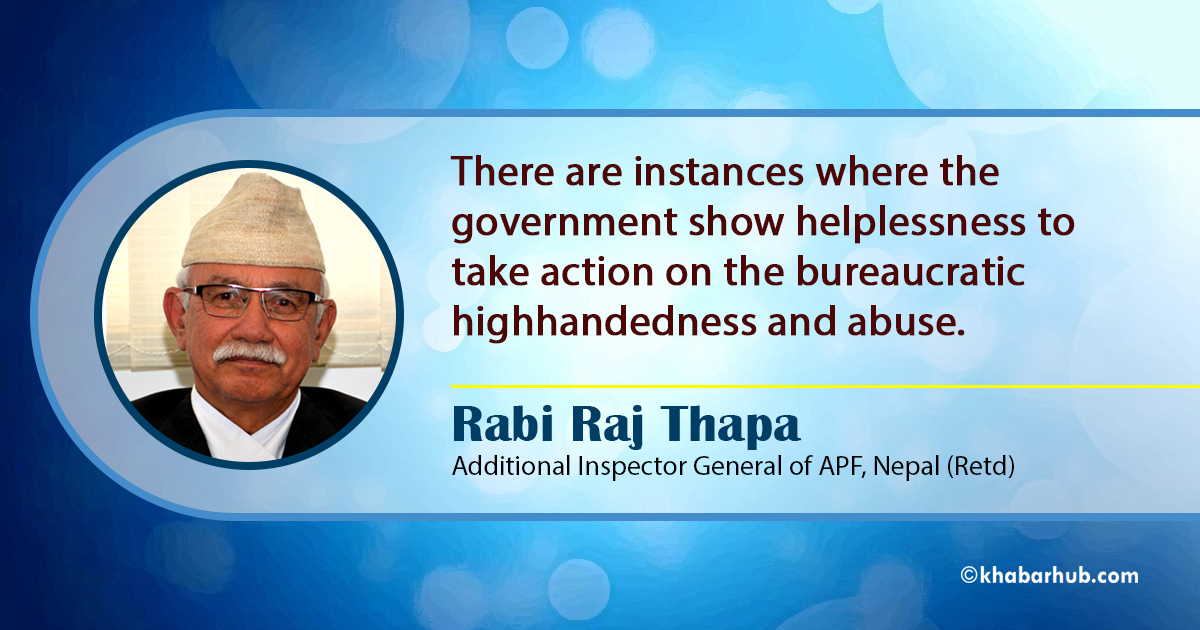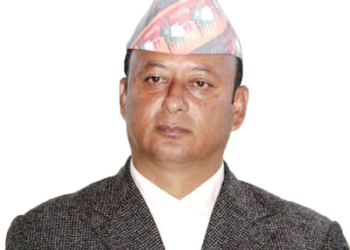World Happiness Report 2018 has ranked Nepal 101 among 156 countries of the world. Therefore, Nepal’s political leadership has a moral obligation and legitimate authority to end this anomaly.
As cited in my previous articles, I have clearly illustrated the undesirable, unethical partnership or the organized criminals, brokers, commission agents and the politicization of crime that has introduced common parlance of the criminalization of politics and the politicization of crime.
The incumbent government decided to regulate the transport syndicate which it had created to support its own political system. But unfortunately, the government had to withdraw its decision when it found out that the transport syndicates had developed into an organized cartel not weaker than the government by any means. As the issue surfaced into public notice, people were shocked to know that all the public transports were dictated and monopolized by five big syndicates all over the country.
For example, Prithvi Rajmarg (Highway) Bus Syndicate alone controlled 1,375 vehicles. This syndicate spends more than 30 million from its welfare fund only. It spends 50 million insurance per year. It has got 400 staffers and 700 driving staffs. Similarly, area-wise ArnikoYatayat (Arniko Transport) covers four districts and spends 40 million per annum, it has 200 busses and has a total of single and corporate shares of 650 transport agencies.
It shows that private organization like transport organizations, whose partnership and collaboration has become indispensable for the smooth functioning of the government. There are numerous professional organizations working as a sister and partner organization of various political parties. This shows that organized syndicates are gaining strength to bargain and on the line to become business cartels if not the organized criminal syndicates as yet. These groups are strongly motivated to make a profit and are aggressive and assertive to protect their interest. Moreover, they have their own code of reward and punishment to become more powerful and united to challenge the government to assert their interest.
Meanwhile, there are instances where the government and its constitutional bodies show helplessness to take action on the bureaucratic highhandedness and abuse. The broad definition put forward by the UN Convention against Transnational Organized Crime, where Organized Crime Groups (OCGs) are described as a structured group of three or more persons, existing for a period of time and acting in concert with the aim of committing one or more serious crimes or offenses in order to obtain financial or other material benefits (UNODC, 2010).
The question is how to translate this definition in Nepali parlance? In practice, organized crime is about making money as much as possible as quickly as possible through any means available, both legitimate and illicit. That is exactly what is happening in the social, political and economic of post-conflict Nepal after the Comprehensive Peace Agreement of 2006.
Like any other countries of the world, public perception of Nepalese is also often influenced by the glamorized portrayal of organized crime in fictional representations in television and film, as opposed to the less sophisticated groupings of ―seedy, immoral, and grubby individuals‖ who make up a typical OCG. This mismatch between reality and perception equally applies to the methods and resources available to tackle the threat, and subconsciously influences expectations at every level.
Challenges of organized crime in Nepal
For most of the 20th century, organized crime was predominantly seen as a law enforcement problem. However, this changed during the 1990s when organized crime, especially transnational organized crime (TOC), evolved to become a wide-ranging security issue as a consequence of globalization and market deregulation. Organized crime is not a new phenomenon in Nepal, but the contemporary socio-political mindset of globalization, democratic freedom, and changed social-political context seem to have embraced it to a very dangerous proportion.
Besides political, socio-economic reasons, they are other factors that have contributed speedy momentum and energy to OCGs and TOCs in Nepal. As the Internet and cell phone technologies became increasingly accessible and affordable, they also inadvertently supported the activities of global criminal networks. Consequently, OCGs flourished, taking advantage of all the technological, physical, and economic advantages globalization had to offer, enabling them to expand geographically across borders to become better networked and interconnected than ever before.
In the year 2000, the United Nations (UN) Convention against Transnational Organized Crime represented a milestone in the global policy response to the threat. Warnings about the rise of organized crime also came from several additional sources including the UN Office of Drugs and Crime. Concurrently, the complex nature of organized crime and its threats have been heavily talked and debated in Nepal too. But the lack of adequate understanding, seriousness, and commitment from the government and the people have given full advantages to the OCG and TOC locally, vertically and horizontally.
Meanwhile, in Nepal, there are several notorious law-breakers, goons, government contractors and brokers who are exposed but proven untouchables by the concerned stakeholders; whether it is the government, public or private entity. Vertically there are many people in the government, politics, bureaucracy; people roaming around their periphery who get exposed repeatedly with no indictment, action, prosecution. Time and again, big names of Nepalese business tycoons and social-political stalwarts and their suspected involvement in the capital flight and money laundering, tax evasion and international scams, stashing billions of dollars in Panama, Switzerland and many off-shore banks.
(To be continued)
Views expressed in this article are the author’s own and do not necessarily reflect the stance of Khabarhub.









Comment